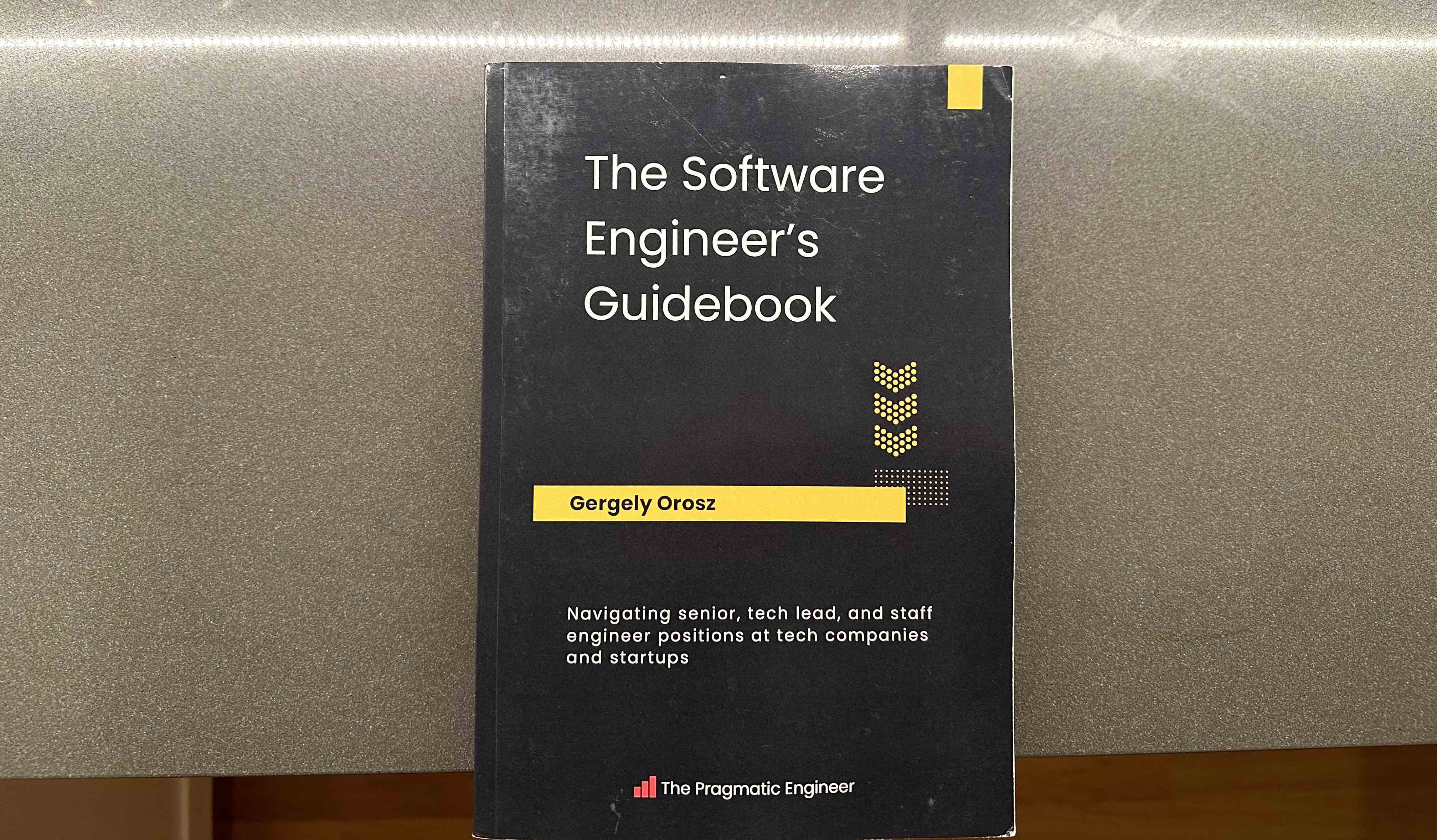
Notes on The Software Engineer's Guidebook
The Software Engineer’s Guidebook by Gergely Orosz is a broad reference book for software engineers that will be particularly valuable for new software engineers and those who’ve worked most of their career in a small number of companies. It doesn’t go deep everywhere, but leaves a breadcrumb on most topics you’ll encounter as a software engineer, along with enough detail to guide deeper exploration in other, narrower books.
Gergely Orosz is the author of The Pragmatic Engineer, and almost certainly the current title holder of “widest-reaching writer on software engineering” with ~500,000 subscribers. He recently released The Software Engineer’s Guidebook, which is nominally his third book after The Tech Resume Inside Out and Building Mobile Apps at Scale, but you could also argue that Guidebook is his first fully formed book. The first two were experiments in the book medium, and this is the first book that Gergely entered with a fully formed plan.
Before getting into my full thoughts, let me pause momentarily to acknowledge that Gergely and I are friendly, have colaborated in the past, and I imagine we’ll colaborate in the future. That said, if you’re going to my blog for a vicious takedown of anything, I think you’ll leave disappointed–that’s not what we do here.
Where it shines
The thing that Guidebook does exceptionally well is briefly cover a broad set of topics. There are so many ideas here that a new graduate or engineer who’s only worked at one company would have never encountered. Even five years into my career, there are topics in this book that I simply didn’t understand, particularly where you only really get visibility as a manager. Narrowing that gap for newer engineers is valuable.
Covering so many topics, most of the coverage is shallow, but I think that’s appropriate here. This is a book of breadcrumbs that lead to numerous deeper resources on the particular topics.
Some might argue that this mile-wide, inch-deep approach is a failure because it doesn’t go deeper, but I think that’s misguided. All books struggle with audiences who have already grown past their subject-matter, and it’s not particularly interesting to evaluate book through the lens of audiences who no longer need them.
Positioning
As you enter the world of writing books and publishing, one inescapable constraint is that you need broad topics to support high sales numbers. Guidebook is essentially the perfect book from a positioning perspective, as it:
- targets early career engineers
- aims to be an encyclopedic reference to continue using over time
Combining those two ideas, you have a book that can support wide sales, and is likely to remain in folks’ libraries as they advance in their career.
Self-publishing
One interesting aspect of this book is that it’s self-published. This is partially a historical accident, as Gergely had significantly less reach when he initially pitched this book, but also a fully deliberated decision: as it stands today, Gergely could have certainly gotten his book publshed, with essentially no constraints, by almost any publisher.
Gergely makes a living from his writing, and the financials of self-publishing are simply undeniable if you bring your own distribution, which Gergely does. I’m not sure if technology publishers can really solve that gap for established authors with significant distribution.
Publishers have a lot to offer to new authors without access to editors or feedback on structuring an effective book. Publishers have some things to offer for authors without their own distribution mechanism, although I think they have a bit less to offer than first-time authors imagine. For established authors with strong distribution mechanisms who are willing to deal with the operational overhead of publishing a book… there just isn’t that much on offer to offset the financial costs.